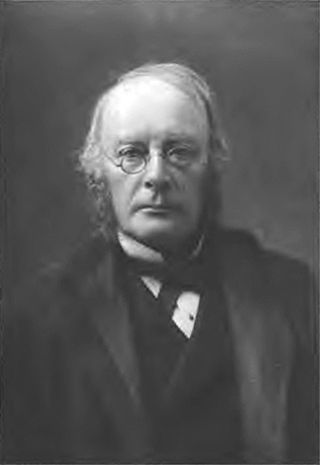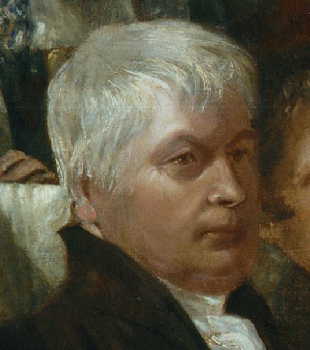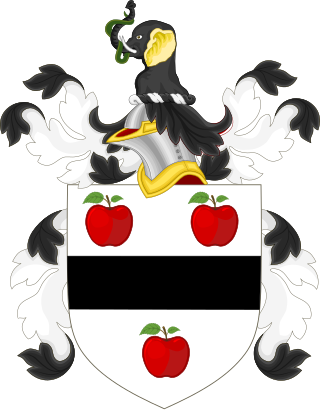
Sir Samuel Ferguson was an Irish poet, barrister, antiquarian, artist and public servant. He was an acclaimed 19th-century Irish poet, and his interest in Irish mythology and early Irish history can be seen as a forerunner of William Butler Yeats and the other poets of the Irish Literary Revival.

John Thompson was an American banker, financial publisher, and dealer in bank notes.

The Guinness family is an extensive Irish family known for its accomplishments in brewing, banking, politics, and religious ministry. The brewing branch is particularly well known among the general public for producing the dry stout Guinness Beer. The founder of the dynasty, Arthur Guinness, is confirmed to have had McCartan origins. Beginning in the late 18th century, they became a prominent part of what is known in Ireland as 'the Ascendancy'.

The Randolph family of Virginia is a prominent political family, whose members contributed to the politics of Colonial Virginia and Virginia after statehood. They are descended from the Randolphs of Morton Morrell, Warwickshire, England. The first Randolph in America was Henry Randolph in 1643. His nephew, William Randolph, later came to Virginia as an orphan in 1669. He made his home at Turkey Island along the James River. Because of their numerous progeny, William Randolph and his wife, Mary Isham Randolph, have been referred to as "the Adam and Eve of Virginia". The Randolph family was the wealthiest and most powerful family in 18th-century Virginia.

Samuel Gurney was an English banker and philanthropist from the Gurney family of Norwich. He should not be confused with his second son, Samuel (1816–1882), also described as banker and philanthropist, and a Member of Parliament.
Henry Seymour Guinness was an Irish engineer, banker and politician.

The Mendelssohn family are the descendants of Mendel of Dassau. The German Jewish philosopher Moses Mendelssohn and his brother Saul were the first to adopt the surname Mendelssohn. The family includes his grandson, the composer Felix Mendelssohn and his granddaughter, the composer Fanny Mendelssohn.
Mary Catherine Guinness Ferguson (1823–1905) was an author and biographer in Dublin, Ireland.
The Rothschild family is a European family of German Jewish origin that established European banking and finance houses from the late eighteenth century.
The Gurneys were an influential family of English Quakers, who had a major part in the development of Norwich, England. They established Gurney's Bank in 1770, which merged into Barclays Bank in 1896. Members of the family still live in the United Kingdom.

Henry Stebbing FRS (1799–1883) was an English cleric and man of letters, known as a poet, preacher, and historian. He worked as a literary editor, of books and periodicals.
Richard Samuel Guinness was an Irish lawyer and a Member of Parliament.

Arthur Guinness was an Irish brewer, banker, politician and flour miller active in Dublin, Ireland. To avoid confusion with his father, also Arthur Guinness (1725–1803), he is often known as "the second Arthur Guinness" or as Arthur Guinness II or Arthur II Guinness.

Christopher Moore RHA MRIA MRHA (1790–1863) was an Irish-born sculptor operational mainly in England in the 19th century.

The Hone family is an Anglo-Irish family dating back to the Cromwellian conquest of Ireland when Samuel Hone arrived with the Parliamentary army in 1649. The family is believed to be of Dutch extraction, although no connection to the Netherlands has yet been found.
George Udny (1803–1879) was a British civil servant in India, barrister and author.

The Appleton family is an American political, religious and mercantile family.